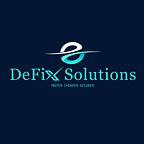Can you Really Trust the DeFi Network Protocol?
Like most individuals accessing Decentralized Finance, safety is among the most significant concerns, if not the most important. While DeFi has established itself in terms of innovation, some stakeholders are apprehensive regarding how their investment is risked. According to media reports, the number of breaches and rug pulls is on the rise. However, some systems are more secure than others. You can invest with assurance if you enquire about the appropriate concerns.
Before investing, you should ask yourself these five questions to help you better assess the security of the system you are risking your investment for.
Stack security on the system
In the crypto space, technical advancement moves quickly. Modern technology is frequently distributed to the community before all safety flaws have been detected. As a result, systems based on unproven technologies should be avoided.
The use of Layer 1 technology is such a case. To put it another way, which ledger is being utilized, such as BSC vs. Eth. Although platforms like the BSC have specific efficiency and processing price benefits over Eth, they also have fewer verifiers, development participants, and investors overseeing chain security. It’s no surprise that organizations do not widely acknowledge them and are more often attacked than Ethereum chain networks.
The instruments employed to interact with Layer 1 may be just as significant. For years, industry-accepted wallets like MetaMask have been put to the test in reality. Limiting network operations to tried-and-true technologies may increase annoyance as individuals are compelled to switch to more secure wallets and procedures; however, the trade-off is lower risk.
Do they Audit Smart Contracts?
It’s critical that a system’s smart contracts are accessible and inspected by reputable industry experts specializing in identifying safety flaws. Smart contracts that have been reviewed prove that system developers have the best interests of stakeholders in consideration and are devoted to enhancing their existing technology.
Individuals used to believe that any indication of human participation was completely untrustworthy and that all you needed to be secure was a smart contract. While this may be accurate for a programmer who can understand code, today’s average entrepreneur is doubtfully a specialist in smart contracts.
In conclusion, all smart contracts are examined by specialists attempting to enhance the system’s security or by cybercriminals hunting for flaws. Don’t put your investment on sites that provide cyber criminals initial access to exploitable flaws.
Who are you transacting with?
Among the utmost crucial things that inventors can inquire about is if the group you’re sending your investment to is willing to communicate directly with you. Building relationships requires accountability to users. As the cliche goes, if someone can be identified, they can also be blamed.
Decentralized Finance provides decentralized transacting — P2P trade with asset self-custody, yet DeFi systems are constructed by people who collaborate on a shared goal. The founders of a network must have their identities and business records readily available. The firm should have a physical location and assistance lines to speak directly with staff members if you have an issue.
Who are they transacting with?
Decentralized Finance systems aren’t necessarily clear about the providers in charge of performing critical network tasks, and consumers can’t always be convinced they’re not dealing with bad guys. These unintended consequences may result in contaminated investments that are unable to be reprocessed to fiat currency.
Money acquired on a site that employs a blending tool to encrypt wallets may be reported as questionable or illegitimate. The same may be said for exchanges using cybercriminal wallets or transactions related to money fraud. Chainalysis will punish such payments, and the contaminated investments will be barred from exchanges or conversion back to fiat.
A person couldn’t be confident that their investments won’t be polluted if the network does not recognize whose trading.
Who is responsible for their actions?
The persons who create a Decentralized Finance system must be held responsible to regulators tasked with protecting stakeholders in particular countries. Regulators employ a method of regulations developed over decades of dealing with rogue individuals in the conventional banking system. Compliance should be seen as a tool for Decentralized Finance providers to design greater security for users based on this experience.
Swarm Markets is regulated by BaFin, Germany’s Federal Financial Supervisory Authority. Working with regulatory agencies entails responding to the above issues, as well as others. Our management, infrastructure, data management, and other aspects of our operations are all closely reviewed to guarantee that we retain the same degree of safety as other economic institutions such as investment firms.
You may feel confident putting your investment to account for you in Decentralized Finance now that you’ve gained the expertise to analyze security.
